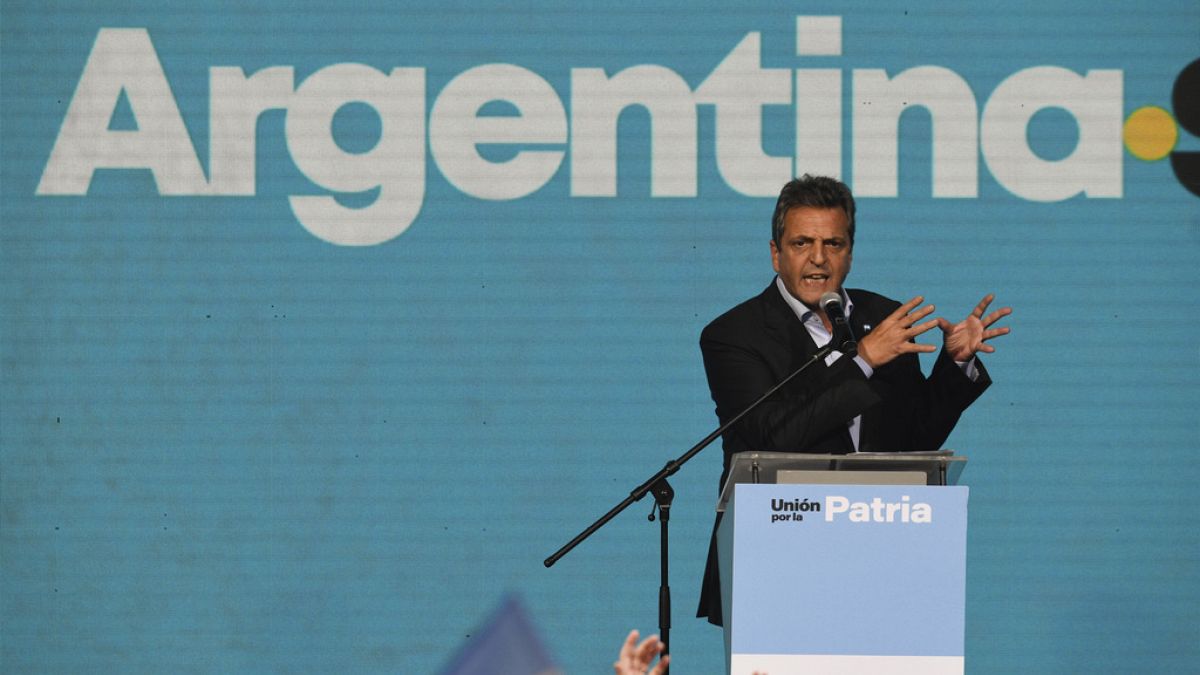Economy Minister Sergio Massa surprisingly beat the eccentric far-right populist Javier Milei in the first round of Argentina's presidential election.
Against all odds and in defiance of opinion polls, Economy Minister Sergio Massa won the first round of Argentina's presidential election on Sunday.
With 36.6% of the vote, he defeated his far-right rival Javier Milei (30%), an eccentric economist who has had a meteoric rise in just two years since his entry into the political arena.
Massa’s victory over Javier Milei came despite the fact that on his watch inflation has surged into triple digits, eroding the purchasing power of wages and increasing poverty.
During his campaign there was: 140% inflation, 40% poor and a central bank with reserves in the red. Yet he wasn't punished in Sunday's vote.
The two will go to a run-off on 19 November.
Most pre-election polls, which are notoriously unreliable, gave Milei a slight lead over Massa. Former security minister Patricia Bullrich of the main centre-right opposition coalition came third in the five-candidate field with 23.8%.
Massa has been a leading figure in the centre-left government, which has been in power since 2019.
He successfully focused his messaging on how Milei's proposals to reduce the size of the state - from halving the number of government ministries to deep spending cuts - would affect Argentines' daily lives, Mariel Fornoni of political consultancy Management & Fit told AP.
This "had a significant impact and obviously instilled more fear than anything else," says Fornoni.
The voice of fear was stronger than Milei's promises.
A radically different approach
Milei and Massa are diametrically opposed in terms of their political philosophies.
The first is a self-described anarcho-capitalist who admires former US president Donald Trump, built a groundswell of support by calling for the abolition of the central bank, the replacement of the local currency with the US dollar and a purge of the corrupt establishment, which he called the "political caste".
The second is a lawyer, Minister of the Economy since July 2022 and, like all Peronists, a pragmatist in both political and economic terms, but a believer in the need for a "present state" to regulate and guarantee what the market does not do by itself.
The traditional right did not see Milei coming, who took all their votes and left them facing a process of rebuilding.
In the days leading up to the election, there was a sense of anxiety on the streets of Argentina.
People with disposable income snapped up goods in anticipation of a possible currency devaluation, remembering that the government had devalued the peso by almost 20% the day after the August primaries.
Argentines also bought dollars and withdrew hard currency deposits from banks as the peso accelerated its already steady depreciation.
Both Massa and Milei raise many serious doubts among economists, because the starting point for whoever assumes the presidency on 10 December is a very complex scenario that determines the viability and success of any economic programme.
In addition to high inflationary inertia, Argentina has a fiscal deficit, no access to international financing markets and currently lacks sufficient foreign reserves to avoid recurrent exchange rate earthquakes and keep the productive machinery running.

